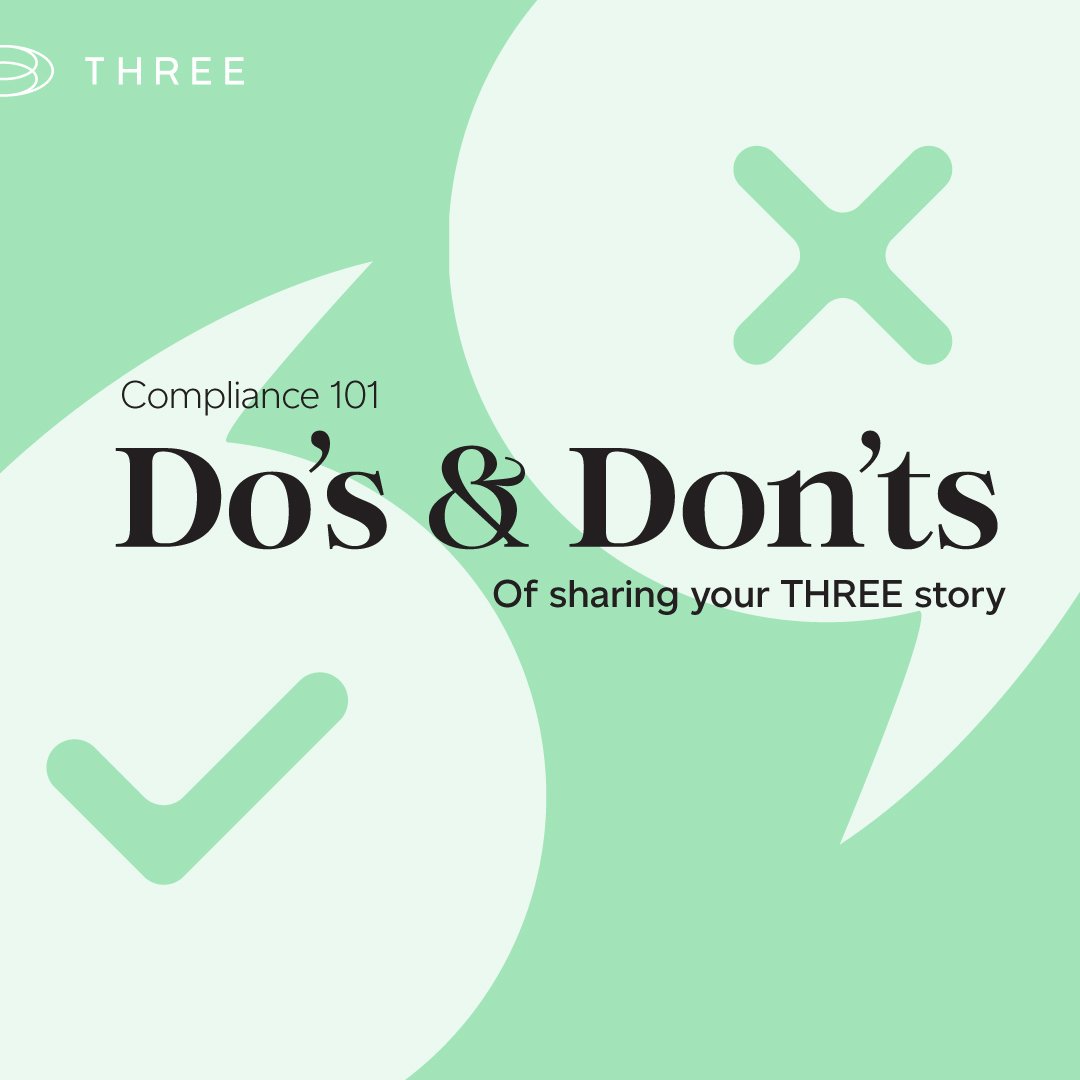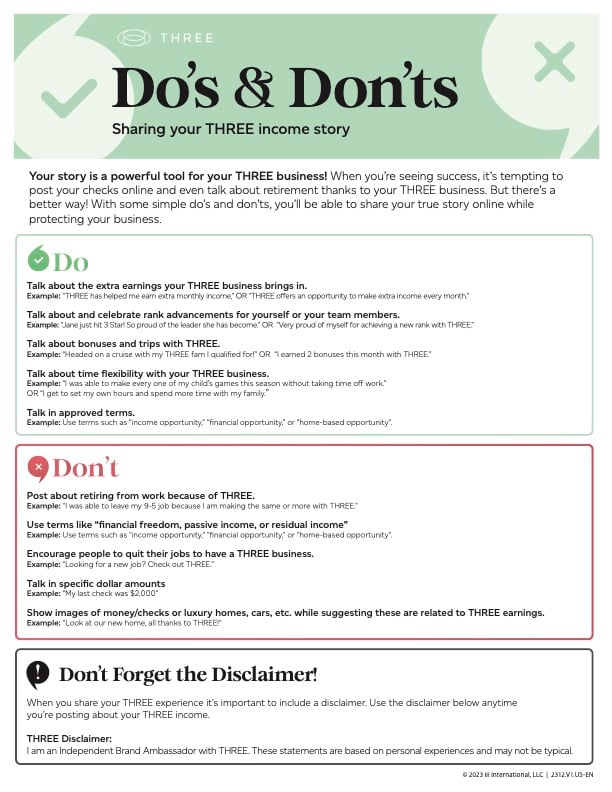
Compliance 101
How to share your THREE story while protecting your business.
The Compliance team here at THREE is tasked with helping you ethically operate your business and share your stories in a way that is truthful while protecting your business. We're always here to help, but below you'll find answers to some of the frequently asked questions, like:
- What is "compliance"?
- What's the FTC and FDA and why do they matter?
- How do I talk about the opportunity compliantly?
- How do I talk about income compliantly?
- How do I talk about the products compliantly?
- What if I have more questions?
Psst! Click a question to skip directly to a section!
What is "Compliance"?
Direct Selling businesses are subject to regulations and guidelines provided by governing agencies to ensure that the products offered as well as the opportunity are legitimate and can be trusted. While at first glance the guidelines may seem a bit daunting, they are in place to protect our Brand Ambassadors, our customers and THREE.
Failure to adhere to these guidelines can carry severe consequences to both our members and to THREE. Following the guides in the page here you'll keep your business and THREE safe!
It is the duty of the THREE Compliance team to properly educate and provide constructive feedback to our members regarding the regulations, guidelines and company policies. From time to time, the Compliance team will reach out directly to provide a gentle education and may require certain corrective actions (e.g. editing/removal of a post on social media). Please know that these communications are offered in a helpful and respectful way with the end goal of helping to preserve your hard work and our company.
What's the FTC and FDA and why do they matter?
The Federal Trade Commission (FTC) governs advertising. The Food & Drug Administration (FDA) governs ingestible products (e.g. dietary supplements). Both are in place to ensure that consumers are protected, and that companies, including their salesforces, are operating in an ethical and honest way. While both agencies are based in the United States, their guidance and regulations are widely accepted as a worldwide standard.
These agencies tell us that advertising must be true and not deceptive, must be supported by evidence, and cannot be unfair. The FTC defines deceptive advertising as this: an ad/post is deceptive if it contains a statement or omits information that: i) is likely to mislead consumers acting reasonably under the circumstances; and ii) is "material" – that is, important to a consumer's decision to buy or use the product.
These are the guiding principles when talking about the THREE opportunity, our products and the Financial Rewards Plan.
How do I talk about the opportunity?
When you're talking about the opportunity within THREE it's important to remember that each Brand Ambassador is different, and the results you or your team have gotten may not be what can be expected by all members. It's also important to note that while the opportunity is a wonderful perk of THREE, it's important to make sure that we're leading with the products and sales to customers. Here a few things that can help.
DO:
- Emphasize the product first.
- Use terms such as “extra” and “supplemental income”.
- Use terms such as “flexibility” and the ability to work “how and when” they want when selling the product.
- Discuss the THREE consumer-oriented approach: the product, refund policies and low start-up costs.
DON'T:
- Do not emphasize recruiting.
- Do not suggest retirement from full-time employment or replacement of primary income.
How do I talk about income?
One of the best parts about being an Ambassador with THREE is earning income and being able to share that with others! But when you're talking about this it's important to be very transparent about earning potential in order to keep you and your business safe. Here are few things to remember when talking about income with THREE:
How do I talk about the products?
Sometimes you want to tell your story or a story of someone you know who had great results with a THREE product. That's great! But first let's go over a few things. Even though someone might have had an exceptional experience with a product, that doesn't always mean that everyone will have or can expect that same experience. As we learned above, regulating agencies monitor closely for "truth in advertising" policies. It might seem a bit difficult, but we've put together some helpful PDFs that host words and phrases you can and cannot say when talking about the products to keep your business safe! Check them out below!
What if I have more questions?
Shoot us an email at compliance@iii.earth anytime you have questions or would like to get some clarity on policies. We're always happy to help.







